Garden Maintenance in Seven Sisters
Introduction to Garden Maintenance
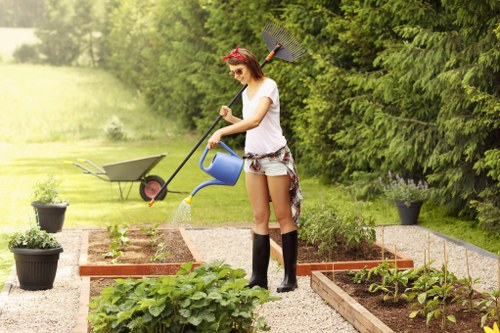
Maintaining a beautiful garden in Seven Sisters requires a blend of dedication, knowledge, and the right tools. Whether you're a seasoned gardener or a beginner, understanding the essentials of garden upkeep can transform your outdoor space into a lush, vibrant haven.
Garden maintenance encompasses a variety of tasks, from regular watering and pruning to soil preparation and pest control. Each aspect plays a crucial role in ensuring the health and aesthetics of your garden.
In Seven Sisters, the local climate and soil conditions present unique challenges and opportunities for gardeners. Adapting your maintenance practices to these factors can lead to a thriving garden year-round.
Understanding the Local Climate
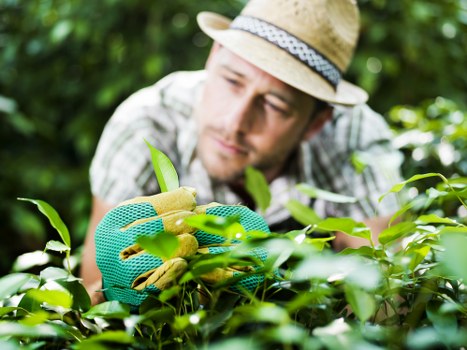
The Seven Sisters area experiences a temperate climate with distinct seasons. Summers can be warm and dry, while winters are cool with occasional frost. Spring and autumn offer mild temperatures, making them ideal for planting and preparing your garden.
Understanding the local climate helps in selecting the right plants that can withstand temperature fluctuations and varying moisture levels. It also aids in scheduling maintenance tasks effectively.
For instance, summer maintenance may focus on irrigation and pest management, whereas autumn tasks might include leaf removal and soil enrichment.
Soil Preparation and Fertilization
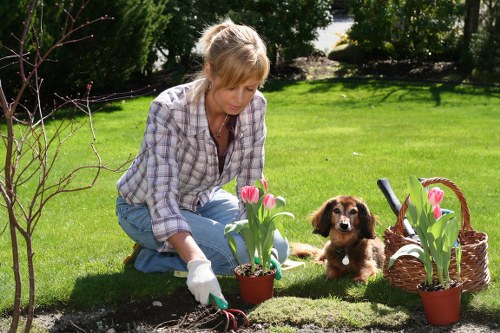
Healthy soil is the foundation of a successful garden. Conducting a soil test can provide insights into its pH level, nutrient content, and composition. Based on the results, you can amend the soil to create an optimal environment for plant growth.
Fertilization is a critical component of garden maintenance. Using organic fertilizers, such as compost or manure, improves soil structure and adds essential nutrients. It's important to apply fertilizers at the right time to coincide with the plants' growth cycles.
Additionally, incorporating mulch can help retain soil moisture, suppress weeds, and regulate soil temperature, contributing to overall garden health.
Plant Selection and Care
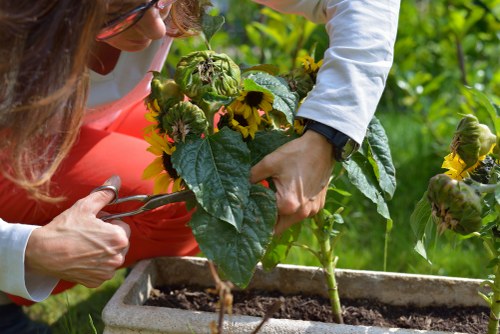
Choosing the right plants is vital for a sustainable garden. In Seven Sisters, selecting native species or those well-suited to the local environment can reduce maintenance efforts and enhance resilience against pests and diseases.
Regular care of plants involves pruning, deadheading, and monitoring for signs of stress or infestation. Pruning helps maintain plant shape, encourages healthy growth, and prevents the spread of diseases.
Implementing a consistent watering schedule ensures that plants receive adequate moisture without overwatering, which can lead to root rot and other issues.
Pest and Disease Management
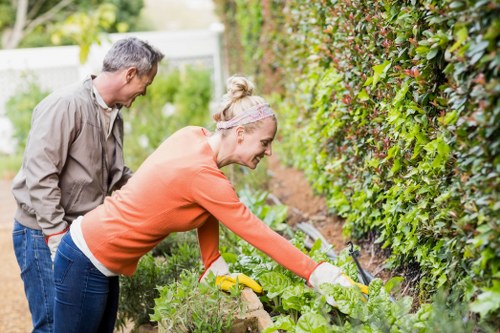
Pests and diseases can significantly impact the health of your garden. Identifying common pests in Seven Sisters, such as aphids, slugs, and caterpillars, allows for timely intervention.
Integrated Pest Management (IPM) is an effective approach that combines biological, cultural, and chemical methods to control pests with minimal environmental impact.
Regular monitoring and early detection are key to preventing infestations from spreading. Encouraging beneficial insects, like ladybugs and bees, can naturally mitigate pest populations.
Irrigation Techniques

Efficient irrigation is essential for maintaining a healthy garden. Drip irrigation systems are highly recommended as they deliver water directly to the plant roots, reducing evaporation and water wastage.
In Seven Sisters, where summers can be dry, setting up an automated irrigation system can ensure consistent watering, especially during peak heat periods.
It's also beneficial to water your garden in the early morning or late evening to minimize water loss and prevent fungal diseases caused by excess moisture.
Weed Control Strategies

Weeds compete with your plants for nutrients, water, and light, making their control crucial for a flourishing garden. Manual removal is effective but can be time-consuming, especially in large gardens.
Mulching not only conserves soil moisture but also acts as a barrier against weed growth. Organic mulches, like straw or wood chips, add nutrients to the soil as they decompose.
Cultivating proper garden hygiene, such as removing debris and regularly inspecting plants, helps prevent weed seeds from taking root.
Pruning and Trimming Techniques

Pruning is vital for maintaining the health and appearance of your plants. It involves removing dead or diseased branches, shaping the plant, and promoting better air circulation.
Different plants have specific pruning requirements. For example, flowering shrubs may need to be pruned after blooming to encourage future blooms, while fruit trees benefit from annual pruning to enhance fruit production.
Using the right tools and techniques ensures clean cuts, reducing the risk of plant damage and disease transmission.
Seasonal Garden Maintenance

Each season brings its own set of gardening tasks. Spring maintenance includes planting new beds, fertilizing, and preparing for the growing season. Summer focuses on watering, pest control, and harvesting.
In autumn, gardeners should clean up fallen leaves, plant perennials, and prepare plants for winter. Winter maintenance may involve protecting vulnerable plants and planning for the next gardening cycle.
Adapting your maintenance routine to the seasons ensures your garden remains vibrant and healthy throughout the year.
Tools and Equipment for Garden Maintenance

Having the right tools is essential for efficient garden maintenance. Basic tools include pruners, rakes, hoes, and watering cans. Investing in quality equipment can make tasks easier and extend the lifespan of your garden tools.
For larger gardens, power tools like lawnmowers, hedge trimmers, and tillers can save time and effort. Regular maintenance of these tools, such as cleaning and sharpening, ensures they function effectively.
Storage solutions, like a shed or tool rack, help keep your tools organized and protected from the elements.
Organic Gardening Practices

Adopting organic gardening practices promotes a healthy ecosystem and reduces reliance on chemical pesticides and fertilizers. This approach benefits not only your garden but also the surrounding environment.
Composting kitchen and garden waste enriches the soil naturally, enhancing its fertility and structure. Organic mulches and natural pest repellents contribute to sustainable garden maintenance.
Encouraging biodiversity by planting a variety of species attracts beneficial insects and wildlife, fostering a balanced and resilient garden.
Landscaping and Design Tips

A well-designed garden is both functional and aesthetically pleasing. Incorporating elements like pathways, water features, and seating areas enhances the overall appeal and usability of your outdoor space.
Choosing a cohesive color palette and plant arrangement creates visual harmony. Layering plants of different heights and textures adds depth and interest to your garden design.
Regular maintenance of landscaped areas, including trimming and cleaning, ensures that design elements remain attractive and well-integrated into the garden environment.
Sustainable Garden Practices

Sustainability in garden maintenance involves using resources responsibly and minimizing environmental impact. Implementing rainwater harvesting systems and using energy-efficient tools are ways to promote sustainability.
Choosing drought-resistant plants reduces water consumption, while recycling garden waste through composting minimizes landfill contributions.
Creating habitats for local wildlife, such as birdhouses and insect hotels, supports biodiversity and maintains ecological balance within your garden.
Dealing with Common Garden Problems

Every garden faces its own set of challenges, from nutrient deficiencies to pest invasions. Identifying and addressing these issues promptly is crucial for maintaining garden health.
Implementing preventive measures, such as crop rotation and proper sanitation, can mitigate many common problems before they escalate.
Seeking advice from local gardening clubs or professional landscapers in Seven Sisters can provide valuable insights and solutions tailored to your specific garden needs.
Conclusion and Final Tips

Effective garden maintenance in Seven Sisters combines knowledge, planning, and consistent effort. By understanding the local climate, selecting appropriate plants, and implementing sustainable practices, you can cultivate a thriving garden.
Remember to schedule regular maintenance tasks throughout the year and stay informed about best gardening practices. A well-maintained garden not only enhances the beauty of your home but also provides a peaceful retreat for you and your family.
Ready to transform your garden? Contact us today to schedule your garden maintenance service and take the first step toward a stunning outdoor space.

